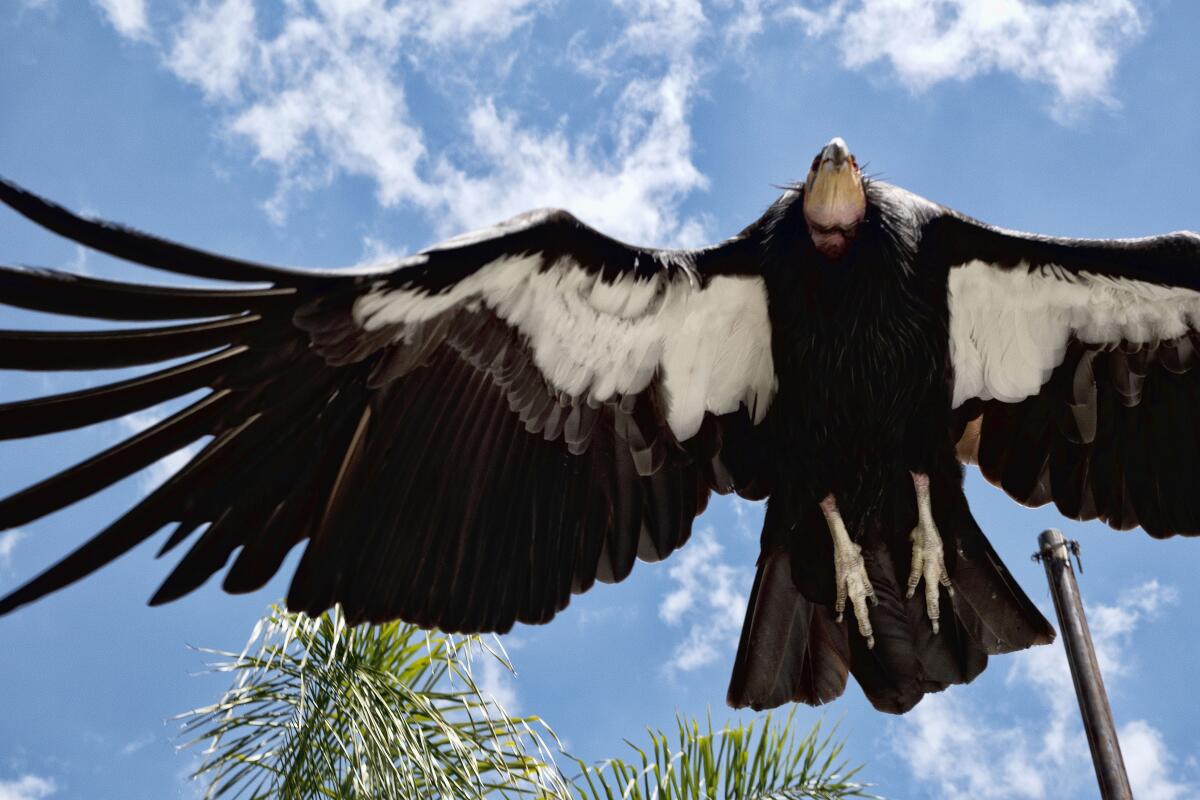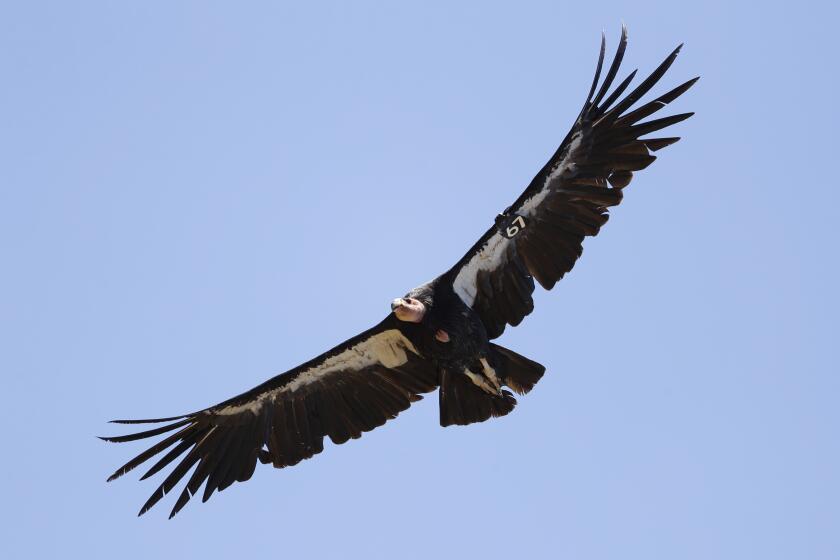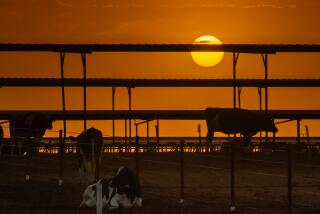Vaccine OKd for emergency use in California condors amid bird flu outbreak

California condors will receive a vaccine for a deadly strain of avian influenza that threatens to wipe out the already critically endangered species, federal officials said Tuesday.
The U.S. Department of Agriculture’s Animal and Plant Health Inspection Service granted emergency approval for use of the vaccine after more than a dozen condors recently died of the bird flu, known as H5N1.
There are fewer than 350 California condors in the wild, in flocks that span from the Pacific Northwest to Baja California.
A pilot safety study will begin this month in North American vultures, a similar species, allowing investigators to check for any adverse effects before they administer vaccines to the endangered condors, according to an Agriculture Department statement.
Federal wildlife officials have confirmed that an outbreak of avian influenza has killed 21 condors in Arizona and Utah since early March.
The department approved the emergency vaccination “because these birds are critically endangered, closely monitored, and their population is very small which allows close monitoring of the vaccine,” the statement said.
Over the last year and a half, millions of birds across the U.S. have died of avian flu, including more than 430 bald eagles and some 58 million turkeys and commercial chickens that were euthanized to prevent the spread of the disease.
Three California condors have died from avian flu in northern Arizona and authorities are trying to determine what killed five others in the flock, the National Park Service said.
California’s condors, with their 10-foot wingspans, were nearly wiped out by hunting during the Gold Rush, as well as by poisoning from toxic pesticide DDT and ingesting lead ammunition.
In the 1980s, all 22 California condors left in the wild were placed in captive breeding programs to save the species. Zoo-bred birds were first released into the wild in 1992 and in the years since have been reintroduced into wild habitats.
More to Read
Sign up for Essential California
The most important California stories and recommendations in your inbox every morning.
You may occasionally receive promotional content from the Los Angeles Times.












